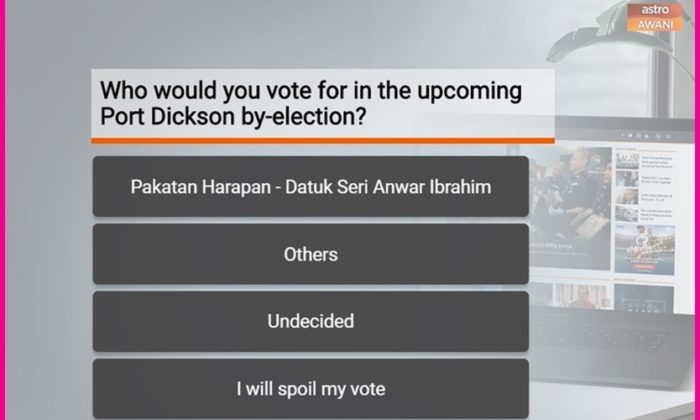



The Blaze Series part 2: Online surveys reinvented by Blaze Digital and Vodus
share on
This post is sponsored by Blaze Digital.
Commercial decisions today are driven by research and data, and reinforced by performance metrics. Quantitative market research is fundamental for growth and insights gained to provide businesses with strategic intelligence about their market, product, audience and competition.
Earn money by saving time
Companies normally consult data collection agencies and/or utilise analytics platforms that are readily available. But, increasingly, online surveys are becoming an effective tool to understanding targeted demographics and audiences.
Effortless to set up, online surveys, in conjunction with the omnipresent nature of the internet, provide the flexibility for questionnaires to be tweaked to target specific groups and demographics, either as vast as the far reaches of the world, or as focused as a city or state.
Feedback from such surveys is fast, effective and actionable. Results can be obtained in days and analysed in a few hours whereas phone interviews and in-person focus groups, while effective alternatives, come at the expense of time and costs.
In any business, any significant amount of time saved is money earned.
Is my data accurate?
Accuracy of data is of paramount importance for businesses to operate on, as a collection of data, which is inaccurate or flawed, would just waste more time and resources. In spite of the cost and speed benefits, the accuracy of results gathered from surveys is debatable.
Three main factors could produce flawed market insights, including:
- Population specification error – when the researcher does not understand who they should survey.
- Sample frame error – sampling of the wrong sub-population.
- Sampling errors – differences in the number, or representativeness of the sample that responds.
Also, long questionnaires are another common issue. It is (an alarming) fact that an individual’s ability to focus has been hindered – sometimes even shorter than 10 seconds if a finding by Microsoft is to be believed.
Hence, lengthy questionnaires with multiple numeric scales and options could yield a high number of non-responses or inaccurate responses. Shorter, more focused surveys are a relief to participants, but the quality of the data should not be tainted at the expense of survey length.
Short, snappy, but accurate surveys are possible
Blaze Digital, the digital marketing arm of Astro, partnered with Vodus, a novel online survey platform, to address these concerns. The collaboration saw the combined efforts of Blaze Digital network’s wide reach bundled with Vodus’ innovative low disruption survey method.
Blaze Digital has more than 40 popular platforms, which create engaging content for Malaysian audiences (from varied backgrounds) every day; while Vodus’ novel survey tool requires users to answer only one question per website visit (yup, just one).
This new quantitative market research tool aims to offer brands an enhanced method to gather more accurate insights from their target demographic.

“We are excited to partner with Vodus as part of Blaze’s marketing insights solution to brands. With their innovative methodologies and execution approaches, brands can better understand their audiences, their opinions and perceptions while they engage with brands digitally. These insights then help in crafting better marketing and engagement strategies,” says Andy Yap, vice-president of Blaze Digital.
While atypical, this fragmented spread ensures the data is sampled from a group which is wide, but well represented, resulting in a more accurate market insight. This method was successfully utilised at the by-election held in Port Dickson in 2018.
The survey was hosted on several pages under Blaze Digital’s network such as Astro Awani, ERA, GEGAR, HITZ, MY, and RAAGA for a duration of 10 days and ended a week prior to the by-election; with the aim to gauge public interest and anticipate what the outcome of the by-election might be.

The survey saw responses from 240 people whose voting constituency fell under Port Dickson. The survey concluded with 29.3% of Port Dickson voters to vote against Datuk Seri Anwar Ibrahim. In comparison, the actual results (at the end of the by-election) saw 28.7% vote against him.
The collective effort by Blaze Digital and Vodus managed to predict the by-election voting results against Datuk Seri Anwar Ibrahim with a mere 0.6% difference.
We are conscious of the fact that data is essential for businesses to thrive. However, the threat of inaccurate data and the dexterity of keeping digital users engaged, even for an effortless survey, is a prevalent challenge in the current digital landscape.
Still, Blaze Digital’s wide reach, bundled to the innovative survey tool by Vodus, has demonstrated that surveys need not be lengthy and inaccurate.
In parallel, short, but unobtrusive user surveys sampled from the correct demographic can return positive results, as was the case from the Port Dickson by-election, for one to leverage on and utilise for intended marketing purposes.
Click here to read more on Blaze Digital’s partnership with VAV Apps for interactive second screen marketing.
share on
Free newsletter
Get the daily lowdown on Asia's top marketing stories.
We break down the big and messy topics of the day so you're updated on the most important developments in Asia's marketing development – for free.
subscribe now open in new window
